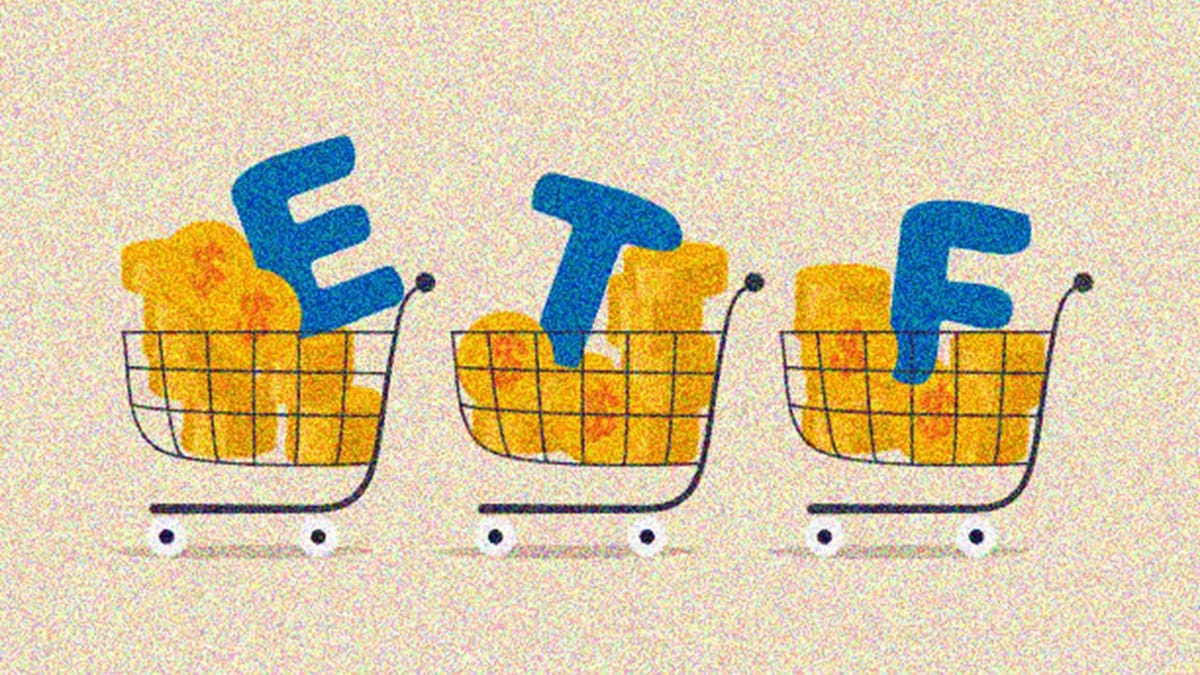Deepshikha | Jul 17, 2022 |

Advantages and Disadvantages of ETFs
Exchange-traded funds (ETFs) have exploded in popularity among investors looking for a mutual fund substitute since their launch in 1993. These instruments—a basket of assets created to mimic an index with low management costs and more intraday price visibility—could benefit both institutions and private persons.
But as with any investment, there are drawbacks to ETFs as well. These drawbacks might range from minimal dividends to wide bid-ask spreads. Investors may navigate the risks and rewards and determine whether these products make sense for their portfolios by understanding the benefits and drawbacks of ETFs.
There are numerous advantages to ETFs, especially when compared to their mutual fund cousins.
One ETF can provide exposure to a variety of stocks, markets, or fashion trends. An ETF can follow a wider variety of stocks or even make an effort to replicate the results of a nation or a group of nations.
The ETF has the trading liquidity of a stock, even though it may provide the holder with the advantages of diversification. In particular:
Because ETFs are traded similarly to stocks, you can easily search up the ETF’s approximate daily price change using its ticker symbol and compare it to the indexed sector or commodity. Many stock websites offer applications for your mobile devices and, in comparison to commodities websites, have better chart manipulation interfaces.
When opposed to actively managed funds, which mutual funds typically are, ETFs, which are passively managed, have substantially lower expense ratios. What causes a mutual fund’s expense ratio to increase? Fees for services like marketing, paying a board of directors, and paying load fees for selling and distribution. Shareholder accounting costs at the fund level.
In contrast to index mutual funds, which can vary in their exact timing of reinvestment, open-ended ETFs automatically reinvest the dividends of the firms they hold. (One exception: Unit investment trust ETF dividends aren’t reinvested automatically, causing a dividend drag.)
The tax efficiency of ETFs versus mutual funds can be higher. ETFs (and index funds) are passively managed portfolios, which generally experience lower capital gains than actively managed mutual funds.
Conversely, if the manager sells securities for a profit, mutual funds must distribute capital gains to shareholders. This distribution amount is taxable and is made based on the percentage of the holders’ investment. Even if other mutual fund investors sell before the date of record, the surviving investors split the capital gain and must pay taxes as a result, regardless of whether the fund’s aggregate value decreased.
Less frequently do ETF share prices exceed or fall below their true value. Arbitrage will bring the price of an ETF back into line if it is much higher or lower than the net asset value because ETFs trade throughout the day at a price that is near to the price of the underlying securities. ETFs move according to supply and demand, not closed-end index funds, and market makers will profit from price discrepancies.
While the pros are many, ETFs carry drawbacks too. Among them:
Due to a small number of stocks in the market index, investors may only have access to large-cap stocks for certain industries or overseas stocks. Investors in ETFs may not be able to take advantage of possible growth opportunities due to a lack of exposure to mid- and small-cap enterprises.
Long-term investors may not profit from intraday price swings because they may have a time horizon of 10 to 15 years. Due to these lagging changes in hourly prices, some investors may engage in additional trading. A large swing over a few hours might lead to a trade where the closing price prevents unreasonable worries from distorting an investing goal.
Most people compare trading ETFs to trading other funds, but the costs are higher if you compare trading ETFs to buying a particular stock. There is no management charge for a stock, even though the actual commission given to the broker may be the same. Additionally, specialised ETFs are more likely to follow a low-volume index as more of them are produced. Consequently, there can be a wide bid/ask spread. You might be able to get a better deal by purchasing the actual stocks.
Some ETFs pay dividends, but their yields might not be as high as those of owning a stock or group of equities with a high yield. ETFs often come with reduced risks, but stocks can offer significantly higher dividend yields if an investor is willing to assume the risk. Even if you can choose the company with the highest dividend yield, ETFs follow a wider range of securities, so the average yield will be lower.
In case of any Doubt regarding Membership you can mail us at [email protected]
Join Studycafe's WhatsApp Group or Telegram Channel for Latest Updates on Government Job, Sarkari Naukri, Private Jobs, Income Tax, GST, Companies Act, Judgements and CA, CS, ICWA, and MUCH MORE!"